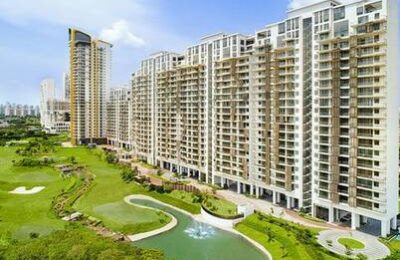Over time, coffee culture has changed dramatically, and the popularity of boutique cafes has grown. These…
Empowering Businesses: Commercial Solar Systems in Western Australia
Western Australia, known for its vast landscapes and abundant sunshine, is not just a haven for natural beauty but also a thriving hub for businesses of all sizes. In recent years, an increasing number of enterprises in the region have turned to commercial solar systems as a sustainable and economically sound solution to their energy needs. In this article, we will delve into the world of commercial solar systems WA and how they are transforming the way businesses harness energy.
The Rise of Commercial Solar Systems
Embracing Sustainable Energy
Western Australia’s ample sunshine makes it an ideal location for businesses to harness clean and renewable energy through commercial solar systems. This shift towards sustainability is driven by several key factors:
- Cost Efficiency: Commercial solar systems offer significant long-term cost savings. By generating their electricity, businesses can reduce their reliance on conventional grid-based power, resulting in substantial reductions in energy bills.
- Environmental Responsibility: As environmental concerns mount, businesses are increasingly adopting solar energy as a way to reduce their carbon footprint. Commercial solar systems produce minimal greenhouse gas emissions, contributing to a greener and more sustainable future.
- Energy Independence: Solar power provides businesses with a degree of energy independence. They become less dependent on external energy providers and can better manage energy usage and costs.
The Components of Commercial Solar Systems
How They Work
Commercial solar systems are comprised of several key components, working together to harness and deliver clean energy to businesses:
- Solar Panels: Solar panels are the heart of the system. They capture sunlight and convert it into electricity through photovoltaic cells. These panels can be installed on rooftops or in open areas.
- Inverters: Solar panels generate direct current (DC) electricity. Inverters are responsible for converting DC into alternating current (AC), which is suitable for powering business operations and equipment.
- Mounting Structures: Proper placement and secure mounting of solar panels are crucial to maximize sunlight exposure. This hardware ensures that panels are positioned optimally.
- Wiring and Connections: The system includes wiring and connections to link the solar panels, inverters, and the business’s electrical infrastructure.
The Installation Process
Bringing Solar Power to Businesses
The installation of commercial solar systems in Western Australia involves a series of important steps:
- Site Assessment: Solar experts assess the business’s property to determine the best location for solar panel placement, ensuring maximum sunlight exposure.
- Component Installation: Solar panels, inverters, mounting structures, and wiring are installed professionally and in compliance with safety regulations.
- Grid Connection: Commercial solar systems are connected to the grid, allowing seamless power supply to the business. Any excess energy generated can be fed back into the grid, potentially earning credits.
- Testing and Commissioning: The entire system is thoroughly tested to ensure it operates correctly and safely.
Shining Bright: Choosing the Best Solar Installers in Western Australia
As Western Australia embraces the solar revolution, many residents and businesses are eager to make the switch to clean and sustainable energy. However, the key to a successful solar installation lies in choosing the best solar installers in Western Australia. In this article, we’ll explore the critical factors to consider when selecting the right solar installer for your needs.
The Importance of Solar Installers
Solar installers play a pivotal role in the transition to solar power. They are the experts who ensure that your solar panel system functions efficiently and safely. Here’s why selecting the best solar installers Western Australia:
- Expertise: Solar installers are trained professionals who understand the intricacies of solar technology. They can assess your energy needs, recommend the right system, and ensure it operates optimally.
- Quality Assurance: The best solar installers source high-quality solar panels and components, ensuring your system performs at its best for years to come.
- Compliance: Solar installation in Western Australia is subject to regulations and standards. Top-tier installers are well-versed in these requirements, ensuring your installation complies with all necessary guidelines.
- Safety: Safety is paramount when dealing with electrical systems. The best solar installers prioritize safety during installation, minimizing risks associated with the process.
Choosing the Best Solar Installers
Key Factors to Consider
When selecting solar installers in Western Australia, keep these factors in mind:
- Experience: Look for solar installers with a proven track record and years of experience in the industry. Experience often reflects a high level of expertise and customer satisfaction.
- Reputation: Check customer reviews and testimonials to gauge the reputation of the installer. Positive feedback from previous clients is a good indicator of quality service.
- Certifications: Ensure that the solar installer is certified and licensed to perform installations in Western Australia. Certifications demonstrate a commitment to professionalism and adherence to industry standards.
- Quality: Inquire about the quality of solar panels and components used in installations. The best installers prioritize quality to ensure long-lasting and efficient systems.
- Customization: Solar needs vary from one property to another. The best solar installers will assess your specific requirements and recommend a tailored solution that meets your energy goals.





This Post Has 0 Comments